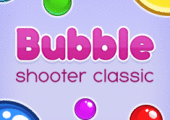Mahjong - Play Online Mahjong 100% Free + 5 Winning Tips, Julio 2024
If you think of Mahjong as just a game that your grandparents like to play at the club, you couldn’t be more wrong. It’s one of the most popular online games and an excellent way to improve your memory and critical thinking.
Mahjong, also known as Mah-Jongg, can be played with friends or as a type of solitaire. The tile-based game has origins dating back to the Qing dynasty in China, which is why most of the tiles have Chinese characters and symbols on them.
The game is played with 144 tiles that are stacked to form a pyramid. You can remove tiles two at a time, as long as they are identical. The game ends when there are no more available matches, or you’ve removed all the tiles from the board.
If you don’t have Mahjong tiles, or you don’t want to have to deal with setting them up, you can play free online Mahjong directly from your browser.
The Mahjong Tiles
There are seven categories of Mahjong tiles. While the specific artwork might vary, they all use the following themes.
1. Chinese Numbers: These tiles are numbered 1 – 9, using Chinese symbols. There are two sets of matches for each tile.

2. Bamboo: Each tile has between 1 and 9 bamboo sticks. There are two sets of matches for each tile.

3. Dots: There nine different dot tiles. There are two sets of matches for each tile.

4. Dragons: There are three dragons in Mahjong. There are two sets of matches for each tile.

5. Direction: There are tiles for East, West, North, and South. There are two sets of matches for each tile.

6. Seasons: There is one tile for each of the four seasons. Instead of matching identical tiles, you can match any season tiles.

7. Flowers: There are four flower tiles. Instead of matching identical tiles, you can match any flower tiles.)

The Mahjong Gameboard
While the online Mahjong game will automatically set up the pieces, it’s good to understand the structure, as it might help you when removing tiles.
There are no set rules for exactly how the tiles should be stacked. However, the most common layout is set up like a 3D puzzle, with five layers that come to a point in the middle, like a pyramid.
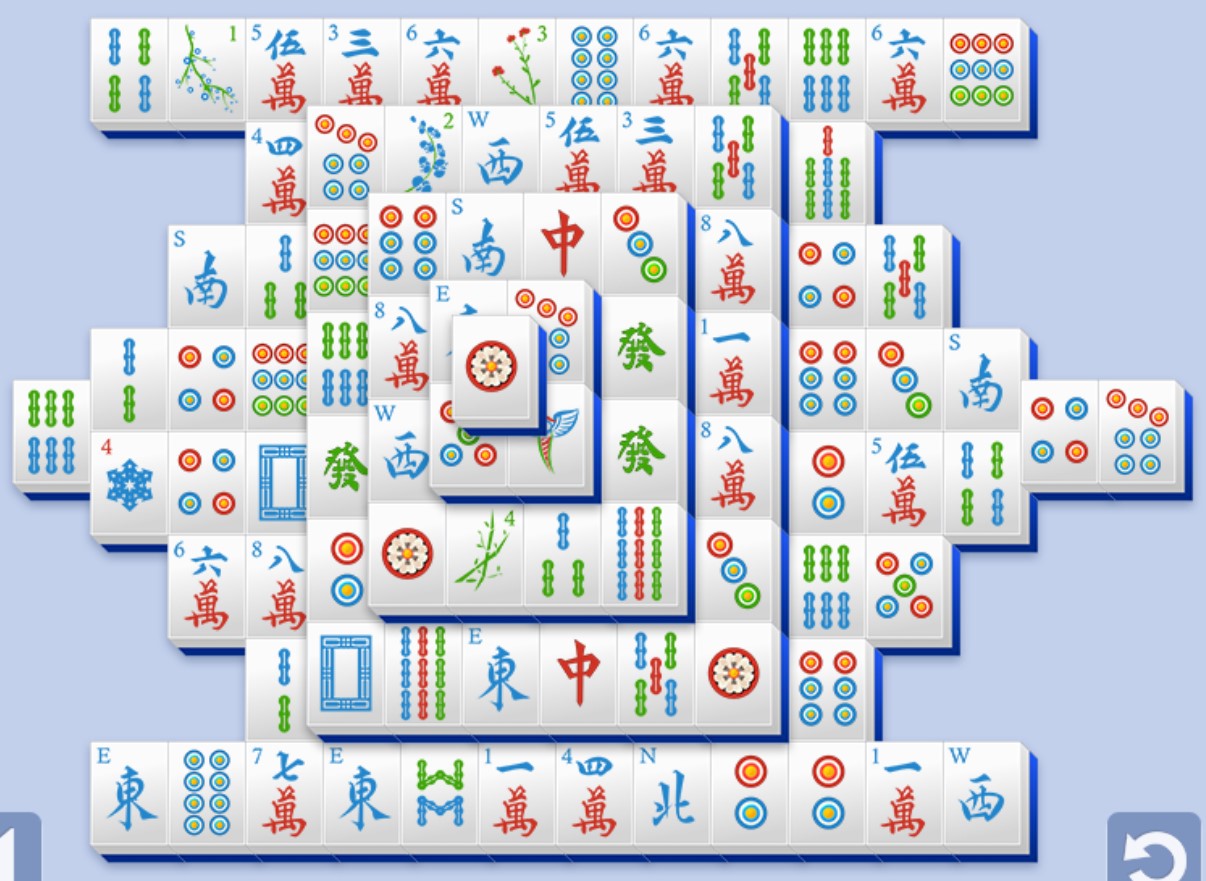
How to Play Mahjong
Mahjong is a single-player, strategic, matching game. To play, find matches for all the tiles and remove them from the playing table. With that being said, just because you see two matching tiles, it doesn’t mean that you can remove the pair from the playing table.
There are four criteria a tile needs for you to match and remove it from the board.
1. The pieces must be identical. You can’t pair a 2 Dot tile with a 2 Bamboo tile. The exceptions are the Flowers and Seasons, as each tile only appears once in the game. You can match these with any other tile in the same category.
2. There can’t be any tiles sitting on top of it.
3. A tile that is blocked in on both sides is considered unexposed.
4. The tile has to be able to move either right or left without touching another piece.
If both pieces fit all the criteria, they are considered “exposed,’ and you can remove them from the board, which will free up the tiles around them.
How to Win Mahjong
There are a total of 72 pairs that you’ll need to match and remove from the board to win. Winning requires patience and the ability to think ahead.
There are some scenarios where you have three matching pieces that can be paired up, and you’ll have to determine which two tiles are the best ones to remove. The factors you will need to examine are which other tiles will be freed when you remove the pair and if that will help you remove additional tiles with any upcoming moves.
In the image below, there are three matching tiles. If I choose to remove the two on the third level, it won’t free up any additional tiles. Therefore, the smart move would be to select one of those two and pair it with the third tile, which will free the W tile.
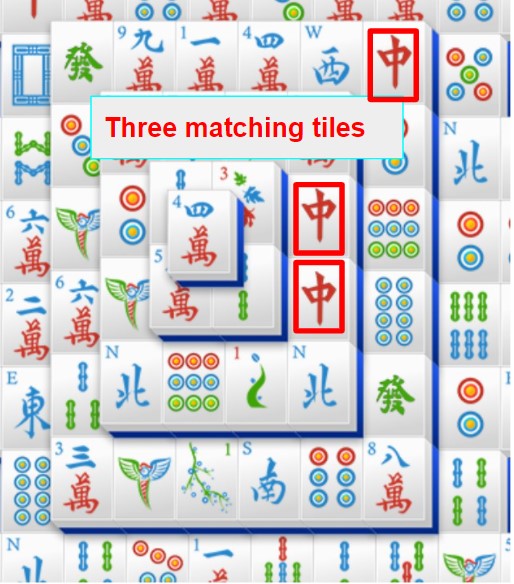
If you have no possible moves, the game will be over. To win, you’ll need to remove all the tiles from the board.
5 Tips for Winning Mahjong Online
1. Always think one step ahead: While it may seem like a simple matching game, one wrong move can be the difference between winning and losing. Before making your first move, take a good look at the board and plan out your first five or six moves. Your goal in these first few moves should be to expose as many tiles as possible.
2. Try and remove the pyramid’s point as quickly as possible: The top piece is blocking the four pieces below it, so finding its match should be your top priority. If the match isn’t readily available, strategize your first few moves so you can free up its match. In the example below, the 9 Dot piece is the pyramid’s tip, but the dragon piece blocks the other 9 Dot piece. Removing the Dragon should be your priority, and then you can clear the two 9 Dot tiles.
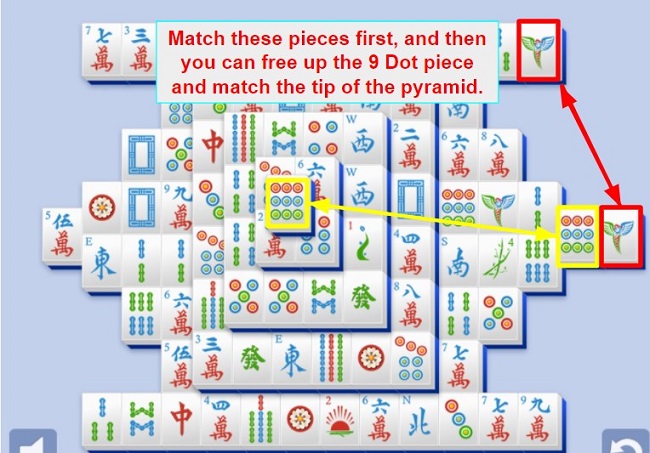
3. Don’t make a move if there are no instant benefits: This strategy is helpful when you have multiple available pairs on the table. In the example below, I can remove the highlighted tiles, but they won’t expose any new tiles, so there’s no benefit to removing them yet. A better move would be to match the colorful dragon tiles, which free up two additional tiles.
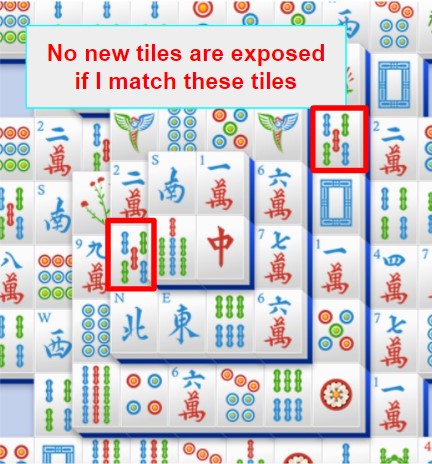
4. Focus on high stacks and long rows: Once you found the match for the pyramid’s tip, it’s a good plan to focus on tall piles and rows going from left to right. Remember, to expose a piece it has to have at least one side free and nothing on top. By working to remove these first, it will be easier to find exposed tiles later in the game when you’ll have fewer available moves.
5. Computerized hints do not always offer the best moves: Some of the Mahjong games allow you to ask for a limited number of hints. While these can be helpful, the program doesn’t always look for the best possible moves. Just like in Spider Solitaire, the computer will highlight a random available move. You should only use the hints if you’re really stuck and can’t find any possible matches.
Now that you know how to play Mahjong let’s talk a little bit about the origins of this game and how it became one of the most popular games in the world.
History of Mahjong
The original game of Mahjong was invented in the mid-1800s in China, more specifically, near the city of Shanghai. The game was initially played with up to four players, who would take turns trying to remove the matching tiles. In the 1920s, Mahjong came to the US, where it quickly became a popular game.
It was licensed by the Parker Bros gaming company and sold in stores around the world. Mahjong groups were formed, and the game was a great way to build friendships and stay in touch with friends.
Much like it did with Klondike Solitaire, Windows added Mahjong, under the name “Taipei,” with early releases of Windows. This version of Mahjong was a single-player game, making it accessible to anyone and allowing players to play Majong 24/7. Currently, Mahjong is played by millions of players, both online and off, around the world.
FAQ
Is Mahjong free?
There are Mahjong tournaments that you can play in and some closed Mahjong groups that require a subscription or entrance fee to play. However, at our site, you can play Mahjong 24/7 for free.
Are all games of Mahjong winnable?
Much like other puzzle games, such as Sudoku, there is a solution for every game of Mahjong. However, you’ll need to make the right moves, or you’ll run out of possible matches and lose the game.
Is Mahjong a game of luck?
Not at all! Mahjong is a strategy-based game that requires you to play smart and think ahead if you want to win.
What is the difference between Mahjong and Mahjong Solitiare?
When Mahjong was originally invented, it was designed as a multi-player game, ideally with four players. However, a single-player version was created so it would be easier to play on the computer. The goal of both games is the same – to match pieces and remove them from the board. However, playing in multi-player games requires a whole different set of skills and strategies than what is discussed in this article.
Is Mahjong good exercise for the brain?
Playing Mahjong won’t improve your IQ or make you smarter. However, according to a medical study published in the National Center for Biotechnology Information, it can improve your cognitive thinking, memory and help delay the effect of Dementia.



